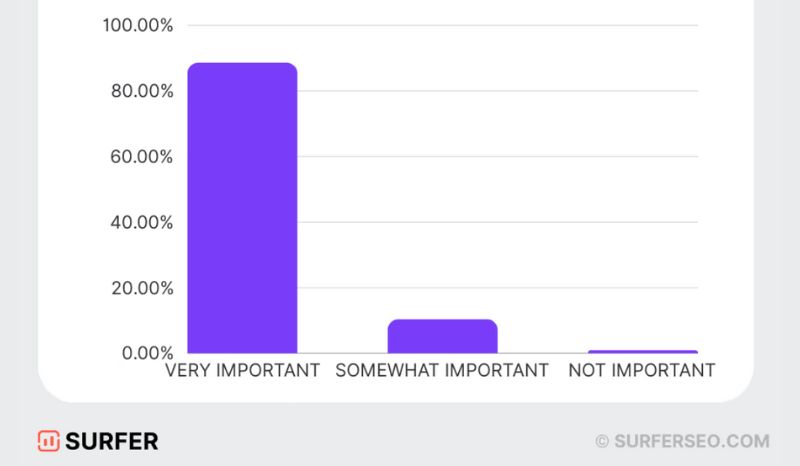Does Blogging Help SEO? 6 Reasons Website Content is Pivotal for Ranking

Blogging helps SEO by:
- producing new, unique, and relevant content.
- building topical authority.
- promoting high-value keyword utilization.
- attracting backlinks.
- improving behavioral SEO signals.
- capturing zero-click searches.
To be successful with search engine optimization, your business needs an online presence. Blogs build this out through high-intent keywords and engaging content. This drives traffic and improves your website’s authority and your customers’ average session duration. According to HubSpot, posting blogs regularly increases your chance of ranking by 434% and boosts your inbound links by 97%. Demand Metric also reveals that brands with an active blog generate 67% more leads monthly.
Blogging for SEO is very much alive, with 90% of marketers using blog posts as their main content strategy (Semrush). Businesses that prioritize blogs are 13x more profitable (HubSpot’s 2023 State of Marketing Report). Blogging remains a crucial SEO tool because of the high demand for search engines to find information online.
According to Neil Patel, blogging is a solid SEO strategy in 2025 and beyond. He suggests developing free tools to enhance domain authority and acquire high-quality backlinks. Long-running websites should update their content base to produce fresh insights and unique information.

While blogging is pivotal to SEO, you’ll need in-depth knowledge of search engine marketing procedures. You need to learn to use Google Trends, Google Search Console, and other SEO platforms. My main business, local lead generation, mainly uses blog posts to rank organically on search engines. I’ve been doing this since 2014. That’s why I know the positive SEO benefits of blogging for small business owners.
This article explores the top 6 reasons why blogs are important for SEO, such as capturing zero-click searches. We talk about the common mistakes to avoid when building search-optimized websites, like ignoring Google Analytics and keyword stuffing. We also feature reviews from SEO professionals and global businesses like John Mueller and Buffer.
1. Blogging Produces New, Unique, and Relevant Content.
When a business produces a blog with new and industry-relevant content, they satisfy the needs of both Google’s algorithm and their customers. Whenever a blog publishes a new post, Googlebots immediately crawl the website. Once Google finds this information reliable and valuable to potential searchers, it indexes the site and ranks it higher.
When creating blog content for SEO, consider your:
- Blog post/article title
- Sentence and paragraph length and complexity
- Answer to the search intent
- Meta descriptions
- Macro and micro context
- Keywords and visuals
You can use AI-powered content generation platforms like ChatGPT and my free writing tool . However, you still need to humanize your content and tailor it to your target audience’s interests.
3. Writing Blogs Promotes High-Value Keyword Utilization.
When you create content for blogs, you use keywords that people use for search queries.These words help your target audience find your posts faster. This attracts relevant audiences who click on your page when they see the answers they need. In turn, your rankings continue to improve when search engines see that your posts are fulfilling user search intent. Use high-value keywords for your:
- Titles
- Blog content
- Photo and blog post meta descriptions
- Title tags
Choose and naturally place keywords that apply to your topic, industry, and expertise. Orbit Media reveals that 33% of bloggers report strong results because they do keyword research all the time. It enhances your post performance by 4.5x (Wix Blog).
Adam Enfroy suggests using AI-backed keyword research platforms, such as Google Keyword Planner, Ahrefs, and Claude. Businesses should use low-competition keywords with high long-term value. It’s also best to maximize niche phrases and cluster related keywords for better rankings.

4. Blogging Attracts Backlinks.
Writing high-quality articles on niche topics attracts inbound links from other websites, or backlinks. Blogs can link out to your site if you have shareable content that brings value to their readers. In return, you get a higher Google Index Score and search engine ranking. Having many backlinks from different blogs signals to Google that your website is trustworthy and reliable. According to BKA Content, sites with blogs receive 97% more backlinks.
Change up your blog content regularly to provide variety and continuously engage your target audience. This gives other sites more reasons to utilize your content and link out to your web pages. Meetanshi states that infographics generate 178% more inbound links. Other in-demand content types you can use are:
- Case studies or success stories
- Research papers
- Tutorials and “How-To” guides
5. Blogging Improves Behavioral SEO Signals.
Publishing highly relatable and engaging content generates positive user experience signals. Once your target audience sees that you provide reliable information, they will consistently check your blog for new updates or posts. This promotes brand and customer loyalty in the long run. Some of the most common behavioral SEO signals are:
- Dwell time - measures the time an individual spends on a webpage.
- Bounce rate - the percentage of visitors who leave your website after checking out a single page.
- User interactions - the activities a user does on your site, such as clicking links, scrolling, or filling out forms.
- Click-through rate - represents the percentage of site visitors who click on your web link after seeing it on the search engine results page.
- Social sharing - shows how many times a webpage is shared across different social networking platforms.
Bloggers monitor these signals to determine their sites’ SEO performance. It’s also pivotal to consider your article length when posting for specific audiences. A Yahoo study revealed that blog posts with over 1,000 words drive longer dwell times. But, you don’t want posts to be too long, as including irrelevant information can actually hurt your ranking. In addition, users spend more time reading articles on mobile devices than on desktops. That’s why mobile-friendly articles are also important for business blogs.
6. Blogs Capture Zero-Click Searches.
Zero-click searches are a great way to generate brand awareness and topical authority. They’re good for SEO because you build credibility when Google features a part of your site’s content on top of the SERPs. This means that your website provides reliable information that benefits potential searchers. Some of the most popular zero-click searches are:
- Featured snippets - These are short but concise pieces of information that answer a question or explain a specific keyword.
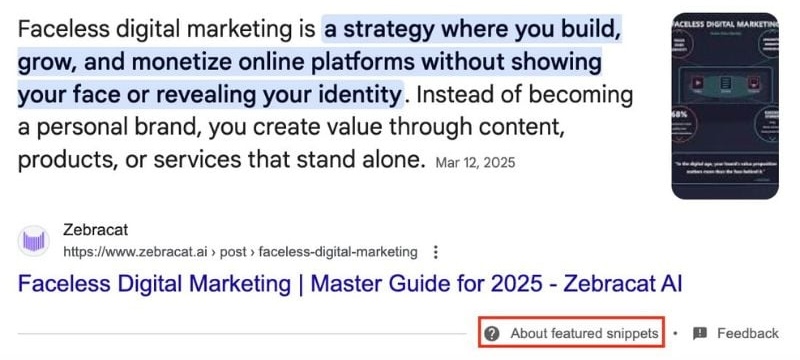
- AI overviews - These are AI-generated summaries of relevant information from a search query.

- Knowledge panel - This is an information box that appears on the right side of the SERPs. It provides links and details about specific people, companies, locations, etc.

A SparkToro study revealed that 58.5% of American searches on Google ended in zero clicks. While this strategy helps with SEO, it can also slash your website traffic. This Redditor suggests creating in-depth, relevant content to support possible featured snippets. Interested searchers will always click on your website link to get more information.

Do Blog Comments Help With SEO?
Yes, blog comments help with SEO because Google crawlers also index this website content. You can rank higher on search engines if you have more related entities on your site.
John Mueller, a Google developer advocate, says that user-generated content helps boost your SEO score. Relevant blog comments provide value to your target audience and other searchers. In fact, a QuickSprout study showed that 26.7% of ranking Google keywords are from a website’s comment section.

However, commenting your website link on other blogs doesn’t increase your SEO score. Google automatically tags this as “nofollow.” It has no bearing on your site’s ranking vote. In addition, you must remove spammy comments from your website as they affect your index score. Google sees this as low-quality user-generated content. An Orbit Media Studios research revealed that 66% of respondents see spam comments regularly.
How Often Should I Post a Blog for SEO?
You should post an average of 16 blogs per month for better SEO performance. A HubSpot study found that publishing 16 to 20 blog articles monthly improves lead generation by 3x and web traffic by 2x. Small businesses can get higher SEO scores and page ranks if they consistently produce high-value, up-to-date content. Frequent blog posting increases search engine crawling and indexing.
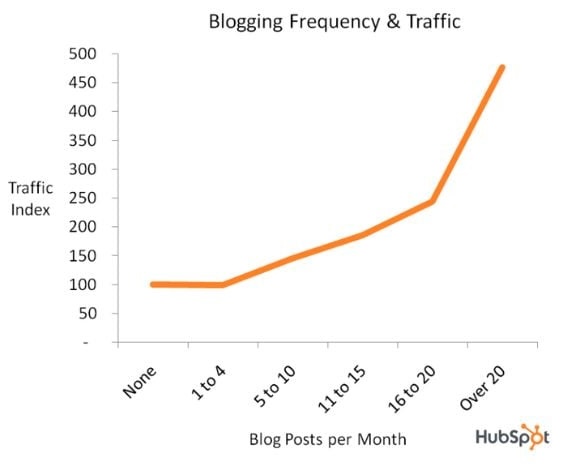
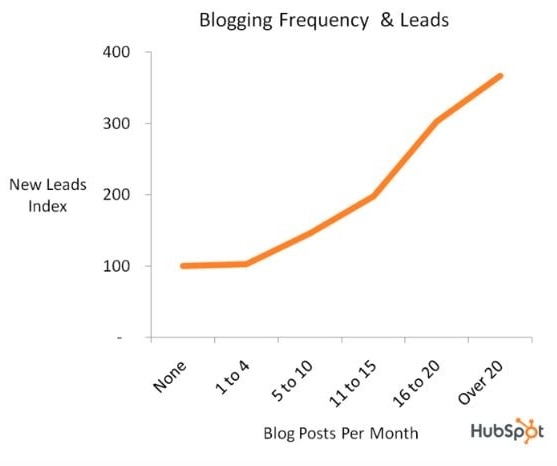
Beginners can start with one blog post per week or four posts per month. Orbit Media’s Annual Blogger Survey 2024 reveals that 22% of bloggers post weekly, while 23% publish several times a month. More experienced business blogs can post over 20 times a month to generate 4x more leads and 5x more traffic. However, it’s important to maintain a regular publishing schedule that fits your time and skills.
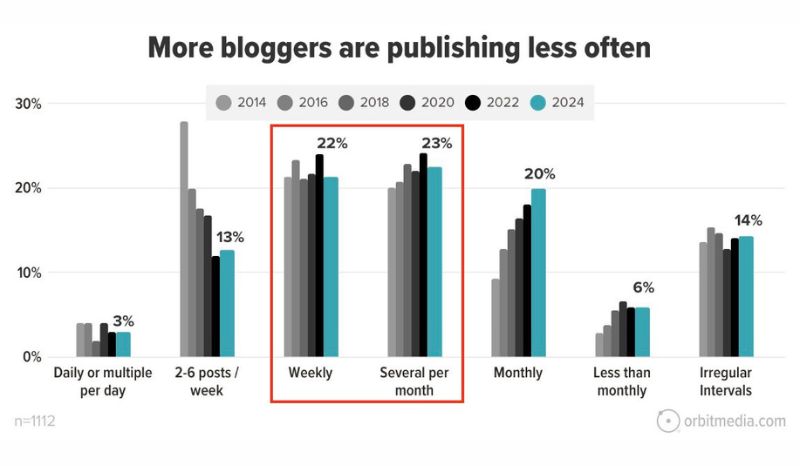
Top Testimonials From Individuals and Brands Using Blogs for SEO
Many individuals and brands post testimonials on how they use blogs for SEO to scale their business. This Redditor increased his site visitor sessions from 30 clicks to 100K within 5 months. Creating relevant and engaging blog posts based on less competitive long-tail keywords worked best. Another individual secured the top 3 spots in Google’s SERPs within 4 months using contextual blogs.


Communiqué PR saw a 200% boost in its website traffic since starting a corporate blog in January 2008. This built better community engagement and thought leadership for the company. Its blog also generated positive exposure to potential investors, consumers, and employees.
Buffer grew its user base to 1 million in 2.5 years by actively posting in its social blog. Its strategy focused on sharing social media and content marketing tips and strategies. They post 4x a week, from Monday to Thursday. Buffer’s blog contains 1,500- to 2,500-word articles.
What To Avoid When Developing a Search-Optimized Website
The top things to avoid when developing a search-optimized website are:
- Keyword stuffing and/or ignoring keyword research
- Not maximizing internal links
- Writing full-length articles using generative AI
- Not optimizing on-page SEO elements (titles, meta descriptions, etc.)
- Using duplicate content and/or writing lengthy but low-quality content
- Neglecting technical SEO, such as site speed and mobile optimization
Do Blogs Help Local SEO?
Yes, blogs help local SEO by:
- ranking for local keywords. You can capture city-specific and “near me” searches when using long-tail keywords in your articles.
- establishing local authority. Publishing valuable information on local services or topics positions your website as a niche expert. Potential customers trust local businesses than global companies. In fact, 46% of all Google searches have local user intent (Sagapixel).
- increasing local engagement. High-quality online resources are often cited by other local blogs and media outlets. This helps small business websites to receive backlinks, build authority, and rank higher in search engines.
How Local Lead Gen Helps Small Business Owners With Their Blogs
Local lead generation helps small business owners’ blogs achieve SEO success by:
- capturing local search intent and/or high-intent local keywords.
- creating optimized service/landing pages.
- building local authority and online credibility.
Adding a blog to your main website promotes brand awareness and loyalty through high-quality content. You drive audience engagement through comments and shares. This signals to Google that you’re a niche expert and your site is reliable. With local SEO, you attract potential customers and partners in specific locations. I’ve been using blogs to rank better on search engines since 2014. Plus, I use local lead gen to capture local search intent and make over $50,000 monthly in passive income.
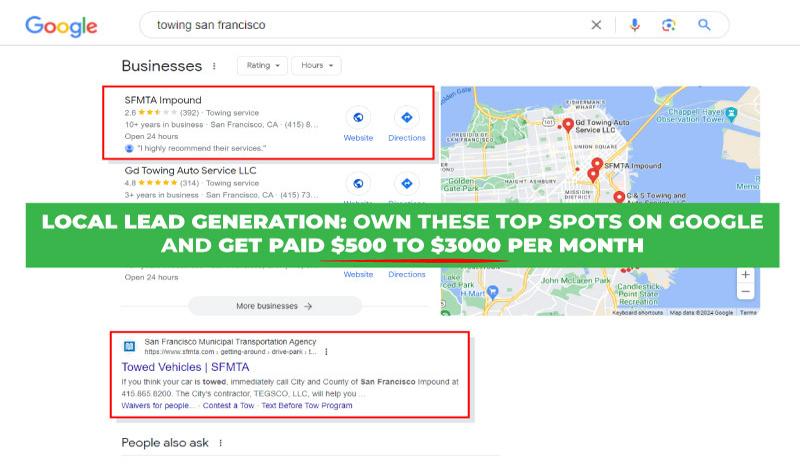
You can also use the local lead generation strategy to identify in-demand niches with long-term potential and build content-rich microsites using SEO. Whether you’re a small business or a long-running local company, blogging using local SEO will definitely improve your traffic, leads, and ranking.

Follow Me
Ippei Kanehara
Founder/CEO
$52K per month providing lead generation services to small businesses
Ippei.com is for digital hustlers, industry leaders and online business owners.
His #1 online business recommendation in 2024, is to build your own lead generation business.
